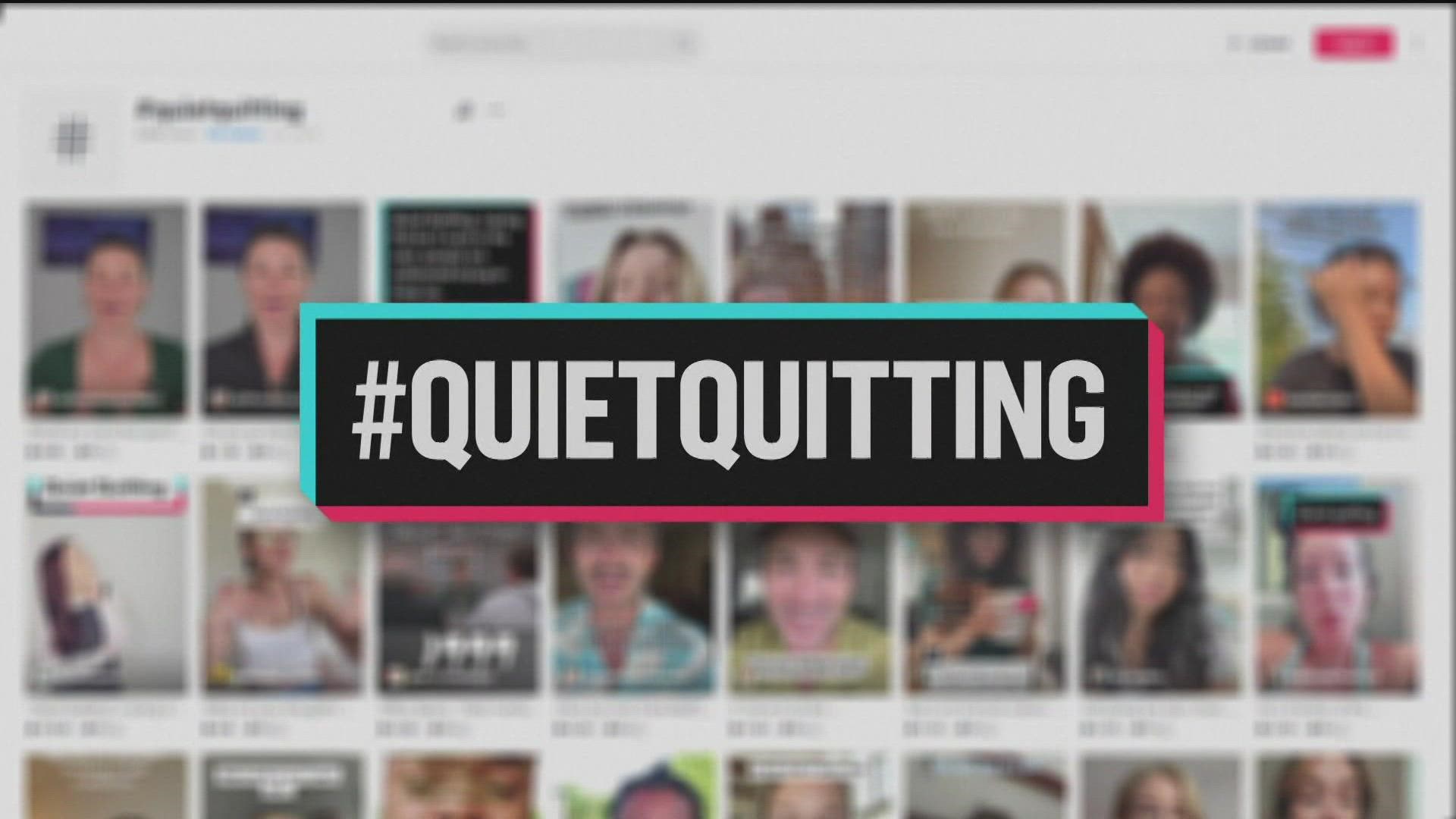SAN DIEGO — Feel overworked, burnt out, and not rewarded for your hard work?
Some are workers are saying fine, they'll just quietly quit without resigning from their job.
The term “quiet quitting" went viral on TikTok with the hashtag gaining more than 20 million views.
It's not technically quitting but quietly pulling away from your 9-5 job and doing the bare minimum. While some may balk at it, it could wake up employers and help the workforce.
“In American culture, we have an ideal worker norm, which is the best worker is available at all hours,” said Lacie Barber, PhD, Associate Professor of Psychology at San Diego State University.
She has published her research on Telepressure in the workforce and says this just Gen Z’ers who are using the term.
“I think these conversations are happening at all age levels in the organization. I think we should thank our younger colleagues for being on social media more and being outspoken about these issues and ideas,” said Barber.
The pandemic sparked this new work culture and is putting mental health first. Quiet quitting can vary from one employee to another. But for many it’s not going the extra mile, not working overtime or checking emails and text afterhours.
Barber says before the pandemic, the office had structure but now remote work creates fewer boundaries leading to more burn out and "job creep," where you are tasked with more work than you are paid for or not rewarded.
This comes at a time when Gallup recently released a study that shows in 2020 worker engagement went down for the first time in a decade to 36% and continues to dip to 32%.
Barber says there needs to be what she calls sustainable engagement amongst co-workers and managers.
“Now it's about how can we signal to each other consideration for flexible schedules without obligation? And I think that's the conversation we want to have,” said Barber.
This could be a wakeup call for employers.
“Very important for retention, losing workers is costly. I think there's some upside for employers and managers,” said Elizabeth Lyons, Associate professor at UCSD’s School of Global Policy and Strategy.
She has done extensive research in teleworking and best practices.
“I think making these adjustments is going to result in a more productive workforce and more productive companies. But yes, it does require upfront effort,” said Lyons.
That effort from all fronts could create a more "namaste" work culture.
The CDC has more information and resources on mental health in the workplace.
WATCH RELATED: County leaders to meet and discuss significant behavioral health worker shortage in region (August 2022)

